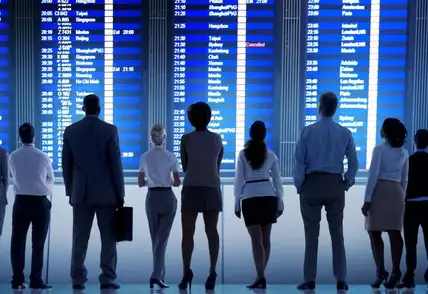Non-rev (revenue) passenger
A non-rev passenger is a traveler who occupies a seat on an aircraft without generating direct ticket revenue. This typically includes airline employees, retirees, or eligible family members traveling on standby passes. While they do not pay the base fare, they may cover certain taxes or airport fees depending on the airline’s baggage policy and fare rules.
Non-rev travel can be both a perk and a risk for travelers. Because seating is based entirely on availability, travelers may be “bumped” if the flight is overbooked. Placement on the standby list usually depends on several factors:
- employee seniority – longer service often means higher boarding priority;
- check-in time – for travelers with the same priority level, earlier check-in improves chances of boarding; and
- priority codes – airlines assign internal codes based on an employee’s role or purpose of travel.
There are also special cases known as positive space travelers. These passengers are given confirmed seating that uses revenue inventory, rather than waiting on standby. Positive space tickets are typically issued to
- senior executives and their eligible family members;
- employees traveling on official company business, such as conferences or supplier meetings; and
- pilots and crew repositioning for upcoming flights
Non-rev passengers can increase their chances of getting unoccupied seats by traveling during off-peak times and being flexible with routes or connections.




